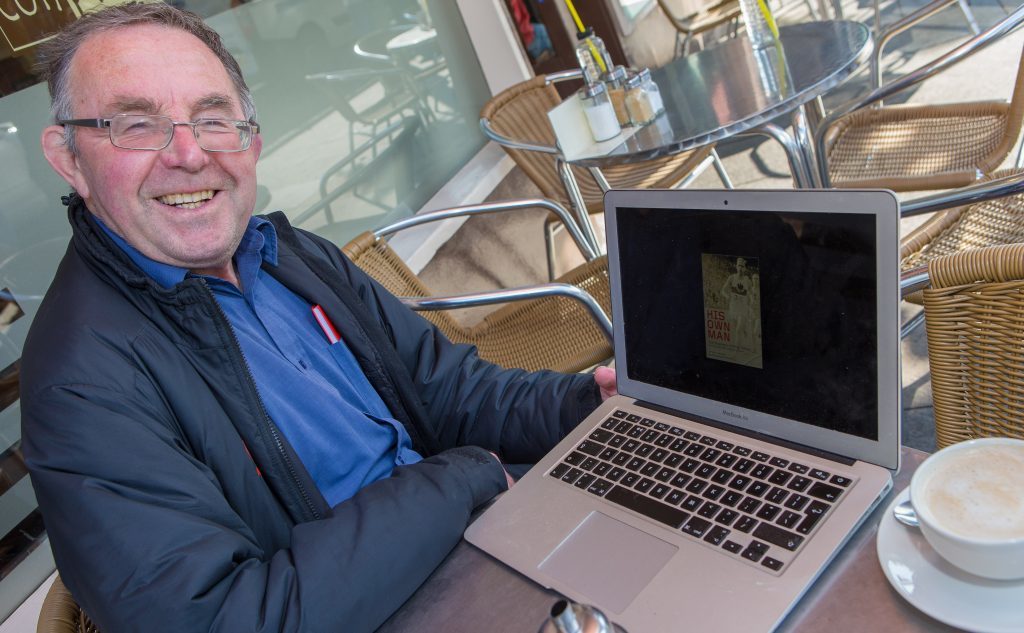As the 2016 Rio Olympics enters its final lap, Michael Alexander speaks to a former Fife Olympian and school teacher who has written a book about a forgotten persecuted German Olympic hero.
Donald Macgregor is bleary eyed and apologetic when The Courier catches up with him at a St Andrews coffee shop.
He’s been up late the previous night watching TV coverage of the women’s 1500m final at the Rio Olympics – and he was disappointed to see Great Britain’s Laura Muir fade from third place to finish seventh.
Edinburgh-born Donald, 77, who famously finished seventh in the marathon at the 1972 Munich Olympics whilst ranked 35th in the world, is well known in the St Andrews area as the former principal teacher of modern languages at Madras College.
A Liberal Democrat Fife councillor for almost 10 years, the former athlete, who also ran at the 1970 and 1974 Commonwealth Games, still coaches with Fife AC and St Andrews University, where he graduated with a degree in German and French in the early 1960s.
He gave up running four years ago after a health scare. Friends and colleagues were shocked when he collapsed in the street after suffering a pulmonary embolism. He is now fitted with a pacemaker.
But whilst accepting life will never be the same again, Donald manages to smile about his “relative good health” as it’s given him more time to write a fascinating book which combines his love of athletics and languages – and draws attention to the plight of a forgotten German athlete who was ostracised by the Nazis.
His Own Man, which Donald has co-published with former Olympic marathon runner Tim Johnston, is the story of East Prussian-born rheumatoid-arthritis sufferer Otto Peltzer who ascended the heights to defeat three Olympic champions, fell from grace under the Nazis, then achieved redemption coaching street children in India.
In 1920s Germany, Peltzer became an international celebrity, rival to Paavo Nurmi – the ‘Flying Finn’. In his best years from 1925 to 1930, he was able to fill a stadium of 50,000 people.
A patriot, he was determined to run for Germany which had been banned from the 1920 and 1924 Olympics because of its role in the First World War.
He eventually competed in the 1928 and 1932 Olympics and became known as ‘Otto the Strange’ for his eccentric lifestyle – including nude ‘snow-bathing’.
But his outspokenness made him persona non grata to the Nazis, who came to power in Germany in 1933.
His homosexuality was the pretext for a trial which resulted in his being sent for ‘re-education’ in Mauthausen concentration camp in Austria.
After the war, having survived four years of brutal treatment and then discovering he had lost his home and family to the Red Army, Peltzer was blocked from competing or coaching by his “denazified” pre-war enemies.
Yet for the rest of his life he was determined not to bear a grudge.
He found salvation in India where, as national coach, he followed up a surprise victory over an all-conquering German team by training street urchins to Olympic level.
Chronically ill as a result of his camp experiences, he died of heart failure aged 70 in 1970.
Donald said he had been toying with the idea of a book about Peltzer since 2000.
But it was 2014 before he and Tim Johnston, who finished 8th in the Mexico Olympics of 1968, got to work on pulling it together.
“This is not just a book about sport – it’s about the social and political history of Europe,” explains Donald, who published a book in 2010 called Running my Life about his own Olympic experiences.
“Peltzer, who was an intellectual with a PhD in sociology, travelled around the world and was famous not just in Europe but America where he did a big tour, and Australia and New Zealand. He even had a race against Eric Liddell (of Chariots of Fire fame) in China having not had the chance to run against him during the famous ‘Chariots of Fire’ Olympics of 1924.
“I think Peltzer should be remembered because of the fact he was able to forgive all the horrible things people had done to him that he was able to help an underdeveloped country produce decent athletes.
“The last section of the book says if there was ever a judgment Peltzer will be on the side of the angels. He was really badly treated. His main drive in life was sport and patriotism – he wanted Germany to do well. Homosexuality was a minor thing. And yet it’s how he was defined by the Nazi regime.”
Donald is looking forward to watching the Olympic marathon on Sunday and says it’s a “great honour” that Kirkcaldy-based paralympian Derek Rae, who runs for Anstruther Haddies and Fife AC, will be competing at the Rio Paralympics.








